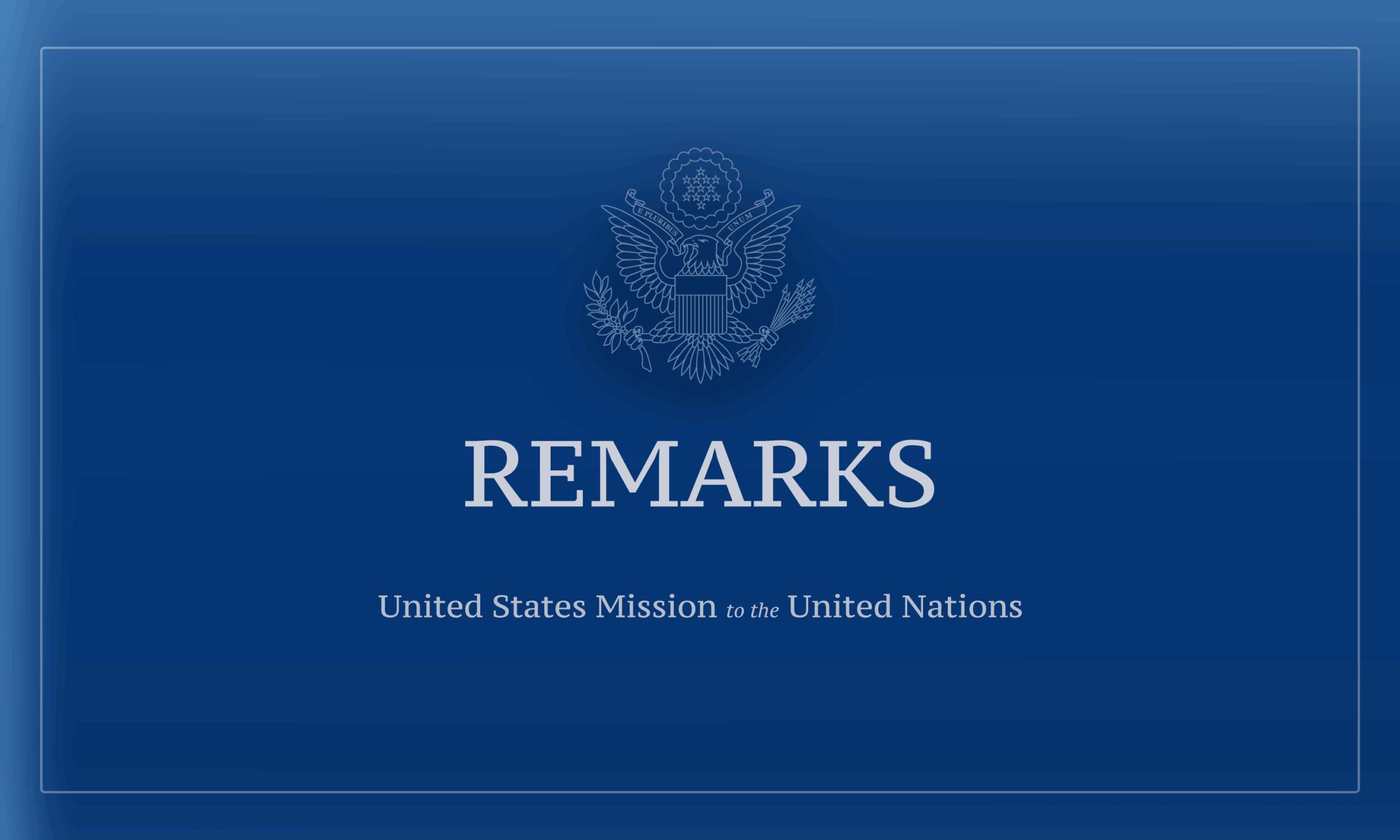Jonathan Shrier
Acting Representative to the UN Economic and Social Council
New York, New York
July 9, 2025
AS DELIVERED
Thank you, Mr. President.
The United States extends thanks to the United Arab Emirates and Senegal for their leadership in coordinating the themes of the water conference.
Colleagues. few issues shape our safety, security, and prosperity as much as the availability of fresh water. Yet, despite decades of international efforts, the global water sector has fallen short of achieving fundamental objectives in water and sanitation. By prioritizing sound development and management of integrated water infrastructure, nations can reduce water risks and promote national and international security and prosperity. Regrettably, the proposed themes of the 2026 UN Water Conference do not focus on pragmatic, country-driven, common-sense solutions and contain several redlines for the United States. Namely:
Proposed theme one mentions the “human rights to water and sanitation.” The United States maintains its long-standing position on this issue; we understand this theme’s reference to human rights to water and sanitation to refer to the right derived from economic, social, and cultural rights contained in the International Covenant on Economic, Social, and Cultural Rights (ICESCR). The United States is not a party to the ICESCR, and the rights contained therein are not justiciable in U.S. courts.
Proposed theme three contains a reference to “climate.” The United States prefers language which focuses on specific environmental threats (such as threats to clean air and clean water, wildfires, floods, drought, sea-level rise). In this case, “environmental” is already referenced in the title and is sufficient.
Proposed theme four contains the term “inclusive,” which is problematic framing as it gives preferences to specific groups. The United States prefers fair involvement for everyone.
Proposed theme five contains references to the 2030 Agenda and SDG 6. The SDGs advance a program of soft global governance that is inconsistent with U.S. sovereignty and adverse to the rights and interests of Americans. As previously stated, the United
States considers the 2030 Agenda for Sustainable Development and the Sustainable Development Goals a form of soft global governance.
The United States will not block consensus on adoption of this decision, but dissociates from themes 1, 3, 4, and 5 entirely, including — but not limited to — references to the 2030 Agenda for Sustainable Development and its Sustainable Development Goals, climate change, and inclusive governance. The United States encourages Member States to focus on concrete and pragmatic objectives, and the utility of a conference in 2026 that truly addresses needs related to water and sanitation.
Thank you.
